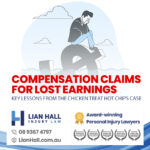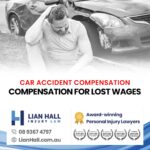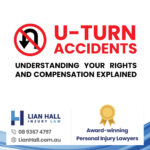The case of Kilani v Aluabaid [2021] ACTSC reflects a situation that lawyers see all too often in cases where a person has been injured in a car accident in Perth, has not been able to go back to full-time work, but battles to explain the value of their lost earnings. It is well established in our law that if you claim lost earnings that you need to prove:
- A reduced capacity to earn, ie: that your accident-related injuries are the reason why you were unable to work; and
- The financial loss, ie: because you were not working, how much did you lose.
In cases where a person is employed it is common to calculate lost earnings by reference to:
- Sick-notes from your GP or medical reports that show that you could not do your usual work because of your injuries; and
- Pay-slips and tax returns showing the drop in your income.
But what if you are self-employed?
In this case of Kilani the claimant was self-employed as a painter & decorator. He was in a car accident and injured his back. He could not work and he claimed compensation for lost earnings. To prove his financial loss he produced the usual documents: pay-slips and the business profit & loss statements and tax returns. But, in the course of giving his evidence it was shown that:
- His pay-slips were not genuine. Somehow they had been created so that he could qualify for a loan;
- The pay-slips were inconsistent with his tax returns;
- The profit & loss statements were not consistent with the pay-slips;
- There were frequent and unexplained receipts of cash into the business; and
- He could not really explain the inconsistencies.
The Court said that the profit & loss statements and tax returns could really only be seen as what information the Plaintiff had given to his accountant. There were no “source documents”, things like invoices and orders books and receipt books and bank statements.
The claimant valued his past lost earnings at $130,000. The Defendant insurance company offered $6,500. Having heard the argument and seen the evidence the Court assessed past lost earnings at a global figure of: $25,000.
This is an all-too-common problem – in a post-Covid world many more people are self-employed but when they are injured in car accidents in Perth they battle to prove the value of their lost earnings. The good news is that as long as you can prove a reduced capacity to earn, the Court will often do its best to make an assessment of your loss. The bad news, the assessment will likely be a global figure and possibly a lot less than you want.
If you claim lost earnings and want to rely on tax returns and financial statements then they need to be consistent with each other. In addition, make sure that everything ties together with the source documents. If you are battling to explain your lost income then it may be a job for your accountant. Do not be afraid to involve your accountant right from the beginning of your claim. And get good legal advice.









